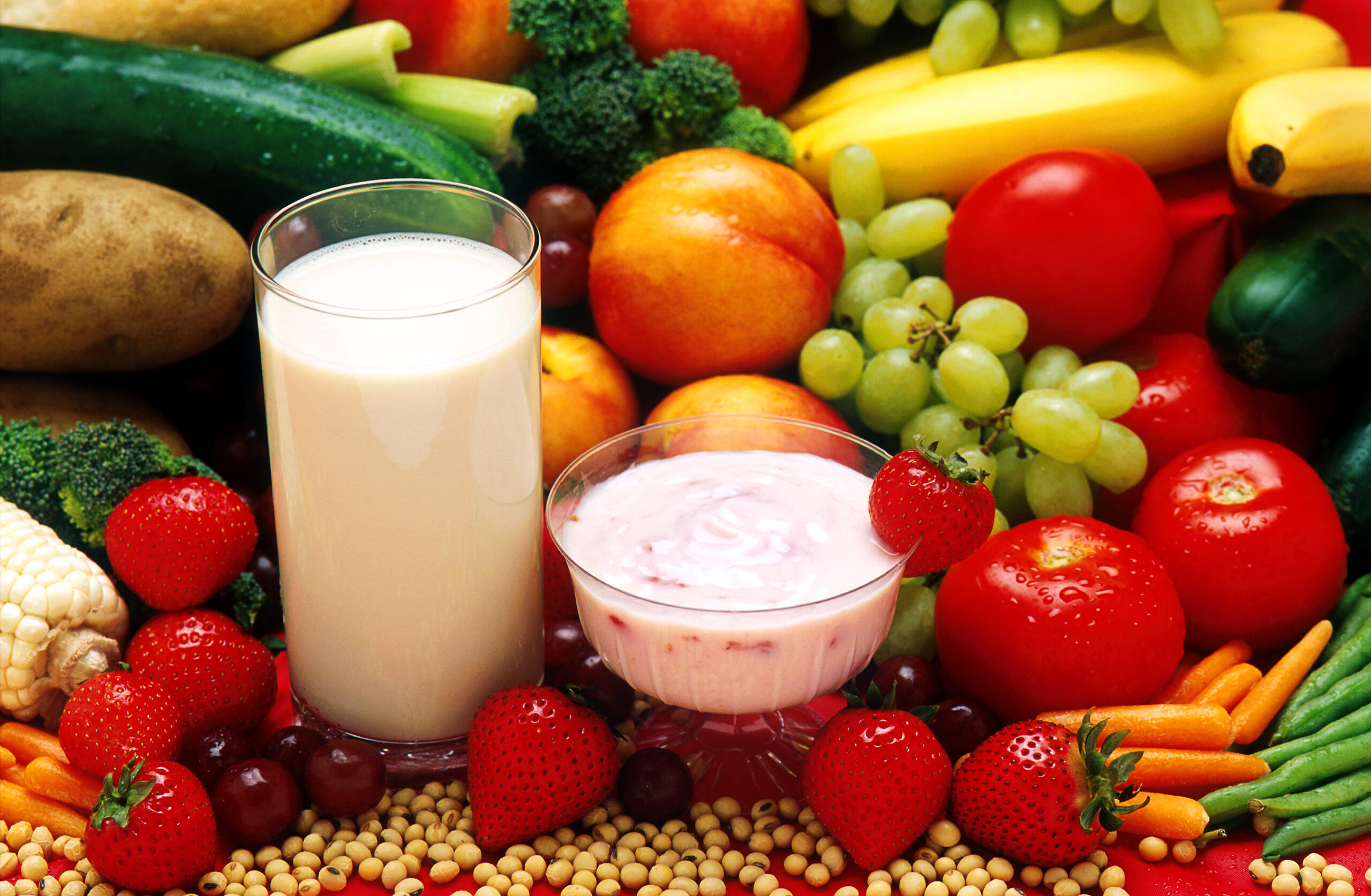TASK 2 (AGREE OR DISAGREE): VEGETARIANISM
Everyone should become a vegetarian because they do not need to eat meat to have a healthy diet. Do you agree or disagree?
Sample Answer
It is often argued that everyone should adopt vegetarianism as meat is no longer required as a necessary component to construct a healthy and well-balanced diet. I firmly disagree with this proposal, albeit with some reservations.
Advocates of converting all dieters to vegetarians cite numerous benefits of a green-based diet. These proponents often argue that a “so-called” green meal consisting of different vegetables, fruits, and nuts can provide eaters with abundant sources of both macronutrients (proteins, fats, and carbohydrates) and micronutrients (vitamins and minerals). Nutrition aside, a vegetarian-based meal can also engender a sense of comfort and relief. A meal consisting exclusively of green items, such as potatoes, spinach, and okra for the main course, alongside walnuts and apples (or oranges) for dessert, for instance, tends to be more digestible and is scientifically believed to reduce digestive discomfort and increase nutrient absorption. A salient example would be dedicated monks living in austerity, who conscientiously employ a wholly vegetarian diet while remaining healthy and age-defiant.
However, to assume that a wholly green-based diet can be a complete substitute for a balanced diet, in which meat plays a pivotal role, is to overlook the indispensable role of meat. Granted, vegetables, fruits, and nuts can be great sources of nutrients; nonetheless, they are largely lacking or even devoid of protein, the most vital substance for muscle building, energy generation, and cognitive development. A person living on a vegetarian diet, in the short term, may only feel a subtle decline in muscle hypertrophy, energy levels, and cognitive performance due to the limited supply of protein. Over the long run, however, this prolonged shortage of protein can cause bodily underdevelopment, energy depletion, and reduced mental ability, as empirically proven—though not conclusively stated—in many health science journals around the world. Additionally, the example concerning monks above is only limited to a small group of individuals who train with a specific purpose, prioritising low body fat percentages, martial arts, and austerity at the expense of a normal life with personal and professional goals. Therefore, such a green-based diet may only be applicable to a small segment of the population but can be irrelevant and inapplicable to the masses.
In conclusion, while I acknowledge the nutritional and psychological benefits of a wholly vegetarian diet, this cannot substitute for a well-balanced and salubrious diet centred around meat, as protein remains arguably the most important muscle-building, energy-generating, and mentally-fuelling substance. Moreover, this diet can only be applicable to a limited segment of the population with dedication and conscientiousness; therefore, saying that everyone has to adopt this diet is not grounded in fact and should be deliberately reconsidered.
Marking by Chat GPT
TỪ VỰNG HAY
Everyone should become a vegetarian because they do not need to eat meat to have a healthy diet. Do you agree or disagree?
It is often argued that everyone should adopt vegetarianism as meat is no longer required as a necessary component to construct a healthy and well-balanced diet. I firmly disagree with this proposal, albeit with some reservations.
Advocates of converting all dieters to vegetarians cite numerous benefits of a green-based diet. These proponents often argue that a “so-called” green meal consisting of different vegetables, fruits, and nuts can provide eaters with abundant sources of macronutrients and micronutrients. Nutrition aside, a vegetarian-based meal can also engender a sense of comfort and relief. A meal consisting exclusively of green items, such as potatoes, spinach, and okra for the main course, alongside walnuts and apples (or oranges) for dessert, for instance, tends to be more digestible and is scientifically believed to reduce digestive discomfort and increase nutrient absorption. A salient example would be dedicated monks living in austerity, who conscientiously employ a wholly vegetarian diet while remaining healthy and age-defiant.
However, to assume that a wholly green-based diet can be a complete substitute for a balanced diet, in which meat plays a pivotal role, is to overlook the indispensable role of meat. Granted, vegetables, fruits, and nuts can be great sources of nutrients; nonetheless, they are largely lacking or even devoid of protein, the most vital substance for muscle building, energy generation, and cognitive development. A person living on a vegetarian diet, in the short term, may only feel a subtle decline in muscle hypertrophy, energy levels, and cognitive performance due to the limited supply of protein. Over the long run, however, this prolonged shortage of protein can cause bodily underdevelopment, energy depletion, and reduced mental ability, as empirically proven—though not conclusively stated—in many health science journals around the world. Additionally, the example concerning monks above is only limited to a small group of individuals who train with a specific purpose, prioritising low body fat percentages, martial arts, and austerity at the expense of a normal life with personal and professional goals. Therefore, such a green-based diet may only be applicable to a small segment of the population but can be irrelevant and inapplicable to the masses.
In conclusion, while I acknowledge the nutritional and psychological benefits of a wholly vegetarian diet, this cannot substitute for a well-balanced and salubrious diet centred around meat, as protein remains arguably the most important muscle-building, energy-generating, and mentally-fuelling substance. Moreover, this diet can only be applicable to a limited segment of the population with dedication and conscientiousness; therefore, saying that everyone has to adopt this diet is not grounded in fact and should be deliberately reconsidered.
Vocabulary
- necessary component – thành phần cần thiết
- healthy and well-balanced diet – chế độ ăn lành mạnh và cân đối
- firmly disagree with this proposal – kiên quyết phản đối quan điểm này
- cite numerous benefits – nêu ra nhiều lợi ích
- green-based diet – chế độ ăn dựa trên rau củ
- abundant sources of macronutrients and micronutrients – nguồn dồi dào vi và đa dưỡng chất
- Nutrition aside – tạm gác vấn đề dinh dưỡng sang một bên
- engender a sense of comfort and relief – tạo cảm giác thoải mái và nhẹ nhõm
- scientifically believed to reduce digestive discomfort and increase nutrient absorption – được cho là giúp giảm khó tiêu và tăng hấp thu chất dinh dưỡng
- salient example – ví dụ điển hình
- austerity – sự khổ hạnh
- conscientiously employ – áp dụng một cách tận tâm
- age-defiant – chống lại sự lão hoá
- complete substitute – sự thay thế hoàn toàn
- plays a pivotal role – đóng vai trò then chốt
- indispensable role of meat – vai trò không thể thiếu của thịt
- devoid of protein – thiếu protein
- subtle decline in muscle hypertrophy, energy levels, and cognitive performance – sự suy giảm nhẹ về cơ, năng lượng và trí tuệ
- prolonged shortage – sự thiếu hụt kéo dài
- bodily underdevelopment, energy depletion, and reduced mental ability – suy giảm phát triển cơ thể, cạn kiệt năng lượng và giảm phát triển trí tuệ
- empirically proven – được chứng minh thực nghiệm
- applicable to a small segment of the population – chỉ phù hợp với một nhóm nhỏ dân số
- irrelevant and inapplicable to the masses – không liên quan và không áp dụng được cho số đông
- well-balanced and salubrious diet – chế độ ăn cân bằng và có lợi cho sức khỏe
- not grounded in fact / deliberately reconsidered – không dựa trên thực tế / cần được xem xét lại cẩn trọng
✔ DÀN Ý
1️. Introduction (Mở bài)
- Paraphrase đề:
→ It is often argued that everyone should adopt vegetarianism…
→ Dịch: Nhiều người cho rằng tất cả nên ăn chay vì thịt không còn cần thiết. - Thesis (nêu quan điểm):
→ I firmly disagree with this proposal, albeit with some reservations.
→ Dịch: Tôi hoàn toàn không đồng ý với quan điểm này, dù vẫn thừa nhận vài điểm hợp lý nhỏ.
2️. Body Paragraph 1 – Argument for vegetarianism (Lý lẽ ủng hộ ăn chay)
- Topic sentence: Advocates of vegetarianism cite numerous benefits.
→ Người ủng hộ ăn chay đưa ra nhiều lợi ích. - Idea 1: A green-based diet cung cấp abundant nutrients (đa dạng dinh dưỡng: vitamin, protein thực vật, chất xơ).
- Idea 2: Nutrition aside, vegetarian meals engender comfort and relief → dễ tiêu hoá, tốt cho tinh thần.
- Example: Monks living in austerity vẫn healthy & age-defiant → ví dụ cụ thể minh chứng lợi ích.
🟩 Cách đi thông tin:
→ Benefit → Example (monks) → kết luận nhẹ: ăn chay có ích nhưng không đủ toàn diện.
3️. Body Paragraph 2 – Counter-argument (Lý lẽ phản bác / chính)
- Topic sentence: To assume a vegetarian diet can be a complete substitute for meat is to overlook its indispensable role.
→ Nghĩ rằng ăn chay có thể thay thế hoàn toàn thịt là bỏ qua vai trò thiết yếu của thịt. - Idea 1: Thiếu protein → gây subtle decline in energy, muscle, cognition.
- Idea 2: Prolonged shortage → bodily underdevelopment & energy depletion.
- Example: Monks chỉ là small segment of population, không đại diện cho số đông → irrelevant to the masses.
🟥 Cách đi thông tin:
→ Phản biện → Bằng chứng khoa học (empirical proof) → Giới hạn đối tượng (monks) → kết luận: không thực tế cho tất cả.
4️. Conclusion (Kết bài)
- Restate position:
→ Dù acknowledge benefits, ăn chay cannot substitute for a well-balanced and salubrious diet. - Final message:
→ Quan điểm “ai cũng phải ăn chay” là not grounded in fact → cần deliberately reconsidered.
💡 Ghi nhớ nhanh cấu trúc đi idea cho dạng Agree/Disagree
Intro: Paraphrase + Opinion
BP1: Lý lẽ đối lập (nhóm ủng hộ) → thừa nhận có ích
BP2: Quan điểm chính (phản bác) → chứng minh meat cần thiết
Conclusion: Khẳng định lại + nhấn mạnh tính thực tế


